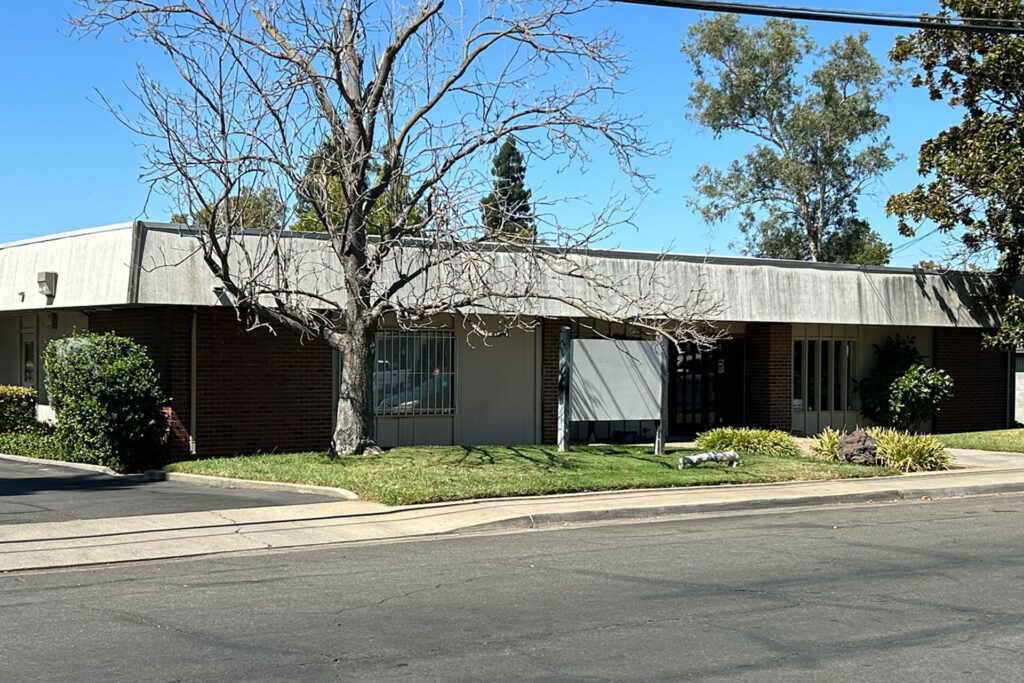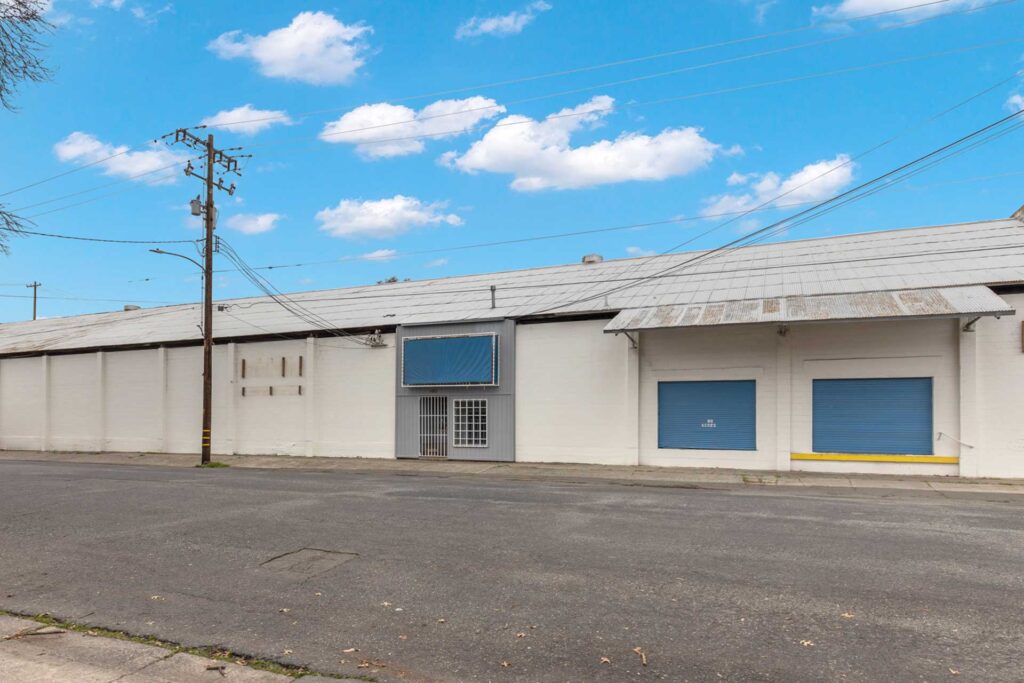In this article we will cover why building wealth through franchise ownership and commercial real estate is an effective strategy for those who plan and execute their investments wisely.
On a larger scale, think back to what McDonald’s founder Ray Kroc said in 1974: “I’m not in the hamburger business, my business is real estate.” He believed that the key to success in the fast-food industry was to have the right location. This meant the property needed to be highly visible, easily accessible, and on high traffic arterials so it was convenient to customers, but this also typically is the criteria for a lot of other retailers and for what makes for a valuable real estate site. In summary, Ray Kroc’s philosophy on real estate was that the right location was the most important factor in success of a business, and that owning property was essential in order to maximize the value of that location.
On a smaller scale an independent fast-food franchisee looking to secure the real estate as part of their expansion plans can leverage the brand name and strength of the franchise concept to secure the real estate through the following strategies:
- Development through ground-up construction
or
- Acquisition and retrofit of an existing building
or
- Lease the real estate and secure an option to acquire the real estate at an agreed upon date (Purchase Option) or secure a Right of First Refusal (ROFR) to purchase the property before it is sold to a 3rd party.
The franchisee would then build the business and increase the EBITDA, sell the business at a multiple, and retain the real estate.
● Sell the business at a multiple
● Retain the real estate
● Lease the real estate back to whoever it is that purchased the business. This will provide a lump-sum cash from the sale, which can be used to invest in additional real estate properties or other investments.
● Secure new financing, if appropriate based on the current lending environment, and cash-out on the increased equity resulting from the new long-term lease.
● Collect rent from the tenant (new business owner).
Tip: When negotiating the new lease with the prospective new business owner (Buyer) it is important to consult with an experienced commercial broker and attorney to maximize the value of the asset. For example, you should look at the length of the lease term, frequency of rent increases, who is responsible for what operating costs Triple Net Expenses (NNN’s), in addition to other lease provisions.
EBITDA stands for Earnings Before Interest, Taxes, Depreciation, and Amortization. It is a financial metric used to measure a company’s operating performance and is calculated as revenue minus expenses, excluding interest, taxes, depreciation, and amortization.
This business owner could now potentially make more money on the real estate side over time than they would from the initial sale of the business. But remember: the primary focus starting off in franchise investments should be building a successful sustainable business.
There are a few questions an investor (the franchisee) should ask themselves before signing a lease or buying commercial real estate:
● Is the investment financially sound? i.e. Is enough revenue generated to have a positive cash flow, a healthy balance sheet, and the ability to generate sufficient income to support its operations and long-term goals.
● What is best for the long-term success of the franchisee business and the brand?
● Is this the best location to be successful in the short and long-term?
● What is my anticipated after-tax cash flow?
● What is an appropriate Occupancy Cost to sales ratio for the business?
Occupancy Cost refers to the total cost of occupying a commercial property, including rent, property taxes, insurance, maintenance, and any other expenses related to the property. It is a key factor to consider when evaluating the financial viability of a commercial real estate investment or leasing a property for business purposes.
Occupancy cost can have a significant impact on a business’s bottom line, so it is important to consider all costs associated with a property before making a decision. A property with a lower occupancy cost can provide cost savings and allow a business to allocate more resources to other areas, while a property with a high occupancy cost can put a strain on a business’s finances.
To determine the occupancy cost of a property, you should consider factors such as the size of the property, its location, the length of the lease, and the terms of the lease agreement. You should also factor in potential expenses such as property taxes, insurance, and maintenance costs. It is important to review the lease agreement carefully and understand all the costs involved before making a decision.
In summary, occupancy cost is a crucial factor to consider when evaluating commercial real estate investments or leasing a property for business purposes, as it can have a significant impact on a business’s finances.
Teamwork: When considering buying or leasing, its critical to build a team of professionals to help you make informed decisions. At a minimum the following individuals should be part of that team:
1.) an experienced real estate broker with strong relationships
2) a tax advisor
3) an accountant
4) a capital market advisor
Ray Kroc, the founder of McDonald’s, believed that the key to success in the fast-food industry was to have the right location, which needs to be highly visible, easily accessible, and on high-traffic arterials. For an independent fast-food franchisee, they can secure real estate through ground-up construction, acquisition and retrofit of an existing building, or leasing with an option to purchase or right of first refusal. The franchisee can then build the business and increase the EBITDA (Earnings Before Interest, Taxes, Depreciation, and Amortization), sell the business at a multiple, retain the real estate, lease it back to the new business owner, and collect rent. When negotiating a new lease, it is important to have an experienced commercial broker and attorney. An investor should consider the financial viability, long-term success of the franchise and brand, the best location, after-tax cash flow, and occupancy cost to sales ratio. Occupancy cost refers to the total cost of occupying a commercial property, including rent, property taxes, insurance, maintenance, and other expenses. A team of professionals, such as an experienced real estate broker, tax advisor, accountant, and capital market advisor, can help make informed decisions when considering buying or leasing real estate.
When it comes to deciding between buying or leasing space as a franchise operator, there are pros and cons to both options that must be considered. Buying commercial real estate provides the franchise owner with complete control over the property and the potential for long-term capital appreciation, income generation, equity building, and tax benefits. Additionally, real estate financing options such as the Small Business Administration (SBA) 504 loan can provide small businesses with low-cost, long-term financing for commercial real estate projects. However, buying also requires a significant upfront investment and the franchise operator is responsible for all maintenance and repair costs. It is important to consider these factors and work with a lender who specializes in SBA loans to navigate the process. Commercial real estate ownership can also provide a sense of legacy building for the owner and their family. We will break down the pros and cons of buying vs. leasing space as a franchise operator and what that means for the franchise owner.
Pros and Cons of Buying vs. Leasing Space as a Franchise Operator
Buying vs. leasing space as a franchise operator is a complex decision that requires careful consideration of multiple factors. Both options have their advantages and disadvantages, and the best choice depends on the specific needs and circumstances of the franchisee. Here are some of the pros and cons of each option:
Pros of Buying:
1. Control: This is probably the No. 1 benefit of owning the real estate where the business operates. Commercial real estate ownership provides the franchise owner with complete control over how the property is used, managed, and maintained.
2. Appreciation: Commercial real estate has the potential to appreciate over time, providing owners with long-term capital appreciation. This can lead to significant financial gains, especially if the property is well-located and well-maintained.
3. Income Generation: Commercial real estate can provide a steady stream of revenue through rental income. If the franchisee is operating in a portion of the property and can collect rent from other tenants this could help provide additional revenue and financial stability.
4. Equity: The franchise operator can build equity over time through the repayment of the mortgage vs. simply paying rent to a landlord. If the franchise owner sells the business in the future, they can hold onto the real estate and lease the space to the future franchise owner while continuing to build equity.
5. Tax Benefits: Commercial real estate ownership provides several tax benefits, including deductions for mortgage interest, depreciation, and property taxes. These deductions can significantly reduce your tax liability, freeing up more capital for reinvestment in the business.
6. Real Estate Finance: The ability to utilize real estate and business finance strategies, such as borrowing against the equity in your real estate portfolio, to fund expansion and new investment opportunities. As an owner-user you may also have access to more favorable financing options such as the Small Business Administration (SBA) 504 loan.
The SBA 504 loan program is a loan program offered by the Small Business Administration (SBA) to provide small businesses with long-term, fixed-rate financing for the purchase or development of commercial real estate. The SBA 504 program is designed to help small businesses grow and create jobs by providing them with access to low-cost financing for real estate projects.
The SBA 504 loan program is structured as a partnership between the SBA, a private lender, and the borrower. The SBA provides a portion of the financing, typically 40%, while the private lender provides 50% and the borrower provides the remaining 10%. The private lender also serves as the primary lender and is responsible for underwriting the loan and servicing the debt.
Benefits of the SBA 504 loan program include:
1. Low Down Payment: The SBA 504 loan program allows small businesses to purchase or develop commercial real estate with a low down payment, typically 10%.
2. Long-Term Fixed Rates: The SBA 504 loan program provides long-term, fixed-rate financing, which helps small businesses budget for future expenses and reduces the risk of interest rate fluctuations.
3. Lower Cost: The SBA 504 loan program provides low-cost financing compared to traditional commercial real estate loans.
To be eligible for an SBA 504 loan, a small business must meet the SBA’s size standards, be a for-profit business, and typically have a tangible net worth of less than $15 million and an average net income after taxes for the two full fiscal years prior to the application of less than $5 million. Additionally, the business must occupy at least 51% of the commercial real estate property.
If you’re interested in obtaining an SBA 504 loan, it’s important to work with a lender that specializes in SBA loans and has experience in the 504-loan program. They can help you navigate the application process and provide guidance on the best loan structure for your specific needs. Visit www.sba.gov to learn more.
TIP: When considering an SBA 504 loan make sure to research a good Certified Development Company (CDC) to help you navigate the process. 504 loans are available through Certified Development Companies (CDCs), SBA’s community-based partners who regulate nonprofits and promote economic development within their communities. CDCs are certified and regulated by the SBA. Small business applicants work directly with a participating SBA lender and not with SBA.
Legacy Building: Commercial real estate ownership can provide owners with the opportunity to build a legacy that can be passed down to future generations even if the future generation isn’t interested in continuing to run the franchise business. This can provide owners with a sense of pride and fulfillment, as they contribute to their family’s financial security and prosperity.
Cons of Buying:
1. Initial Cost: The upfront cost of buying the property can be substantial and may require a significant investment of capital. This could impact the amount of capital the franchisee could utilize to grow the business.
2. Maintenance Costs: As the owner of the property, the franchise operator will now be responsible for all maintenance and repair costs, which can be expensive. Typically, the tenant is paying a lot of these expenses as additional rent in the form of Common Area Maintenance (CAM) reimbursements including taxes and insurance all of which are considered the triple net expenses (NNN). The difference is that as the owner you will be responsible for managing all of it in addition to necessary capital improvements such as roof replacement, parking lot replacement, etc.
3. Lack of flexibility: Once the franchise operator purchases the property, they are essentially committed to it, and if their business needs change it can be challenging to sell the property and find a new location. It’s important to consider the uniqueness of the business and long-term viability of the location. For example, a fast-food restaurant that as a prototype design and that requires a drive-thru will likely not need to relocate in the near-future and the real estate will likely maintain its future value provided the quality of the real estate and market are solid.
Pros of Leasing Space:
1. Lower Upfront Costs: Leasing a space requires a much lower upfront investment than buying, making it a more accessible option for many franchise tenants.
2. Reduced Responsibility: When leasing a space, the franchise operator is typically not responsible for the maintenance and repair obligations outside of their physical space.
3. Flexibility: Leasing a space provides the franchise operator with greater flexibility, as they can choose to renew their lease or move to a new location if the business needs change.
Cons of Leasing Space:
1. Lack of ownership: Leasing a space does not provide the franchise operator with the benefits of ownership so they don’t have the opportunity to build equity over time. The payments go towards rental payments, not ownership of the property.
2. Limited control: As a tenant, the franchise operator has limited control over the property, and they must typically seek permission from the landlord to make any changes or improvements. There can also often be restrictions within the lease, including but not limited to, inability to sell certain products, limitations on type and/or style of signage, restrictive operating covenants. i.e.: limitations on parking, operating hours, etc.
3. Limited tax benefits: Tax benefits associated with owning commercial property, such as deductions for mortgage interest, are not available when leasing.
4. Uncertainty: When the lease term expires the landlord could re-negotiate the lease terms, including increasing the rent or terminating the lease if they have a better tenant.
Working with franchisees and franchisors is a big part of what we do at Capital Rivers Commercial. As a commercial real estate firm, we work collaboratively with the franchisors and franchisees to help them find the real estate that best fits their own unique business model. Every business is different and because of this, we strive to understand the inner workings of each business. This type of action allows us to give our clients the competitive advantage in an ever-changing commercial real estate marketplace. We are able to create a purposeful expansion strategy and customized site criteria created by using existing customer data as well as other technology tools such as artificial intelligence tools (a.i.). In addition, we negotiate specific lease structures and/or purchase agreements that support the client’s specific goals to ensure success.
Capital Rivers Commercial frequently acts to bridge the gap between the franchisors and franchisees with clear communication and a defined strategy. The franchisor wins when the franchisee is successful, which includes paying royalties and representing the brand appropriately. Success is achieved by both parties when it is truly a team effort.
The following are important points for Capital Rivers Commercial when we are working with a franchisor or franchisee:
● Detailed understanding of the “brand” including its origin, purpose, and culture.
In addition, a detailed understanding of the financial operation of the business.
● Detailed growth development “Roll-Out Plan” for the current year and subsequent years.
● Detailed analysis of critical real estate criteria specific to the brand, including demographic analysis, traffic study, co-tenancy study, traffic generators, etc.
Greg Aguirre is the CEO of Capital Rivers Commercial (www.capitalrivers.com) and is a senior level commercial real estate expert in acquisitions, leasing, contract negotiations, entitlements, portfolio management, and ground up development. Prior to founding Capital Rivers Commercial in 2015 Mr. Aguirre spent over 15 years on the corporate real estate side of the industry working directly for companies such as CVS/pharmacy, JPMorgan Chase, and the Sleep Train group of companies. Capital Rivers Commercial is a full service commercial real estate firm specializing in site selection, tenant representation, real estate development, and asset management.
At Capital Rivers Commercial we help our clients maximize their efforts with franchise investment opportunities. We love discussing commercial real estate, especially when it comes to franchisees and franchisors. If you are interested in learning more contact us.
Written by: Greg Aguirre




